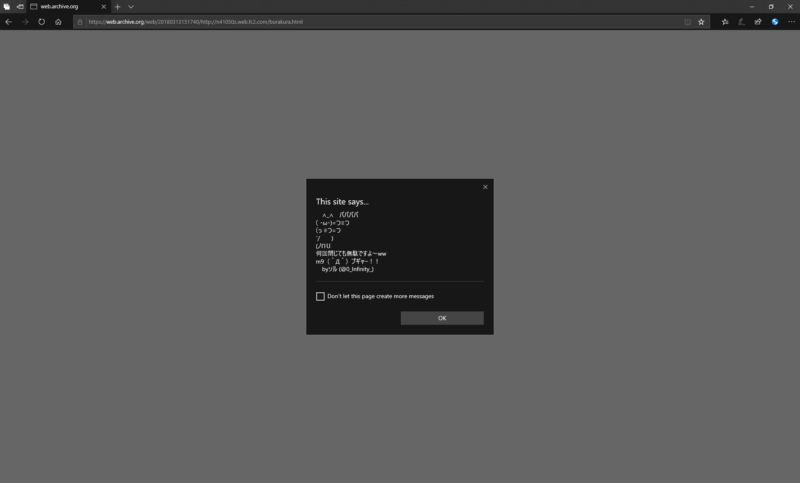
Japanese police in the city of Kariya have questioned and charged a 13-year-old female student for distributing malicious code online after she linked to the code on an online message board. The malicious code in question? An infinite loop that popped up an alert message, immediately showing a new message each time you click OK.
Those curious to see the code can see it in action here, though it's probably unwise to visit on mobile browsers, as they don't seem particularly tolerant of this kind of prank. Every mainstream desktop browser seems to handle the malicious page without incident. Edge, for example, offers a checkbox to prevent the page from being able to show subsequent dialogs, and Chrome lets you close the tab in spite of the alert box. The code itself is extraordinarily simple; it's literally nothing more than an infinite loop and an alert box that prints a kaomoji and a short message that translates as "It's no use closing it so many times."
for ( ; ; ) {
window.alert(" ∧_∧ ババババ\n( ・ω・)=つ≡つ\n(っ ≡つ=つ\n`/ )\n(ノΠU\n何回閉じても無駄ですよ~ww\nm9(^Д^)プギャー!!\n byソル (@0_Infinity_)")
}
You can see it above, though that's not quite the same as single-handedly crashing 1,507 computer systems on one day.
In the investigation of the criminal act, the police examined user logs of the bulletin board and found others also suspected of linking it. In response, they raided the house of an unemployed man and that of a 47-year-old construction worker. None of the three individuals appear to be accused of actually having written the infinite loop. Explaining her actions, the girl said that she'd run into such pranks herself and thought it would be funny if someone clicked the link.
The Twitter user referenced in the message, 0_Infinity_, has a protected account, but the user left a message in their bio field suggesting that they don't understand why there's so much fuss about the script today, as it was written in 2014.
To protest the actions of the Japanese police and the absurdity of calling this act a crime, Tokyo developer Kimikazu Kato has published on GitHub a project called Let's Get Arrested. Forking the project and then creating a branch named gh-pages will create a simple GitHub-hosted website that contains nothing but the infinitely looped alert, putting criminality at our fingertips.
reader comments
190